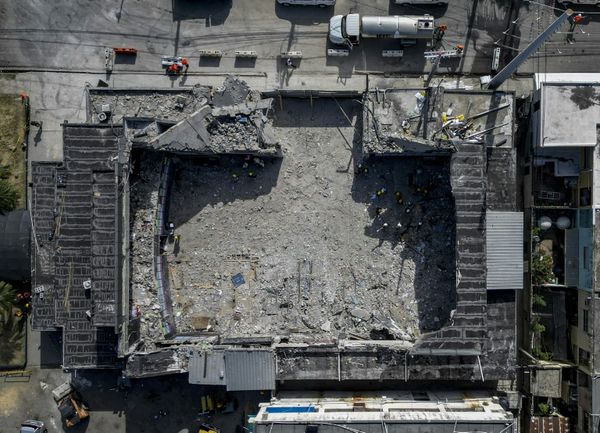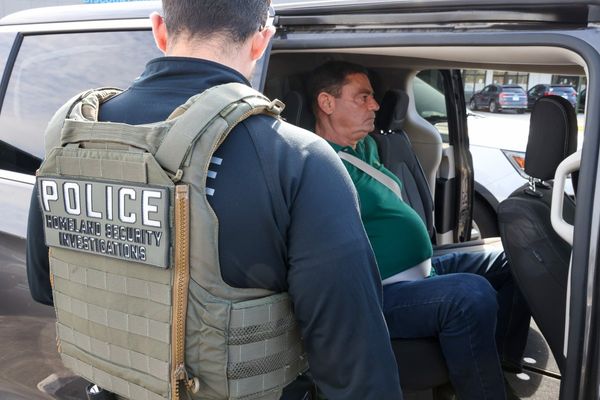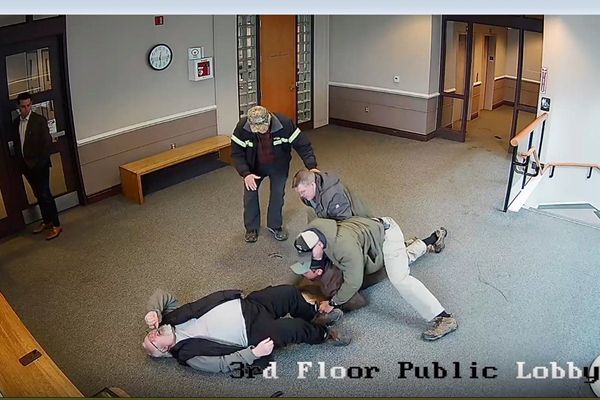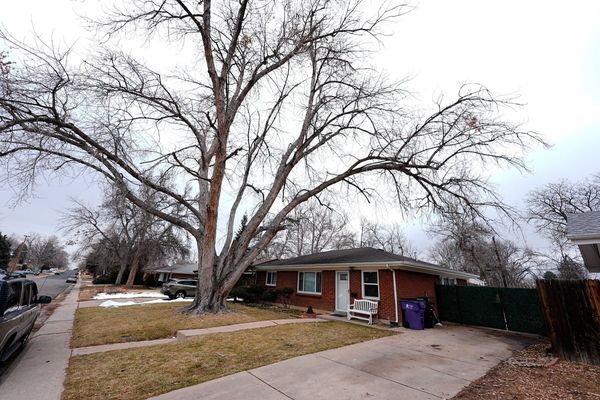
Hamas has said it will release six hostages from Gaza this week and hand over the bodies of four others, including the remains of two young children from the same family whose deaths had not previously been confirmed.
Khalil al-Hayya, a Hamas negotiator, said the four bodies to be handed over on Thursday would include those of 32-year-old Shiri Bibas and her sons, Kfir and Ariel, who were nine months old and four years old when Hamas abducted them from the Nir Oz kibbutz during the 7 October 2023 attack that ignited the Gaza war.
The boys’ father, Yarden Bibas, was told by Hamas that his family was dead when he was released earlier this month, but Israeli authorities were not able to confirm their deaths, and family members said that the father had continued to believe they could still be alive. Hamas has claimed the young boys and their mother were killed by Israeli bombing.
Hamas has said it will release six surviving hostages on Saturday, which represents a slight acceleration of the first phase of the ceasefire agreement. Under the originally agreed timetable, they were to be released in two groups of three, the last on 1 March, when the second phase is due to begin. A further four bodies are to be handed over on schedule next week.
The release of six hostages on Saturday was confirmed by the office of the Israeli prime minister, Benjamin Netanyahu. In return, all the remaining Palestinians due to be released from Israeli prisons in the first phase will be freed on Saturday. Israeli press reports said that Israel would also allow into Gaza some of the bulldozers and mobile homes that have been waiting on the Egyptian side of the border, to begin the vast task of rebuilding the devastated Palestinian territory.
Israel’s foreign minister, Gideon Sa’ar, said that Israeli negotiators in Doha would begin discussing the details of the second phase of the ceasefire agreement “this week”, something Netanyahu had previously refused to condone despite the fact that under the agreement second-phase talks were supposed to start in the first week of February.
The second phase is supposed to include the release of all remaining hostages with a corresponding number of Palestinian detainees and prisoners, and the completion of the Israel Defense Forces’ withdrawal from Gaza, including the Rafah crossing point into Egypt – in effect putting an end to the war.
The right wing of Netanyahu’s governing coalition has adamantly opposed the start of the second phase, threatening to bring down his government, but Donald Trump’s Middle East envoy, Steve Witkoff, put his foot down on the issue over the weekend.
“Phase two is a little more complicated than phase one. But phase two is absolutely going to begin,” Witkoff told Fox News on Sunday, adding that he just talked to Netanyahu about the issue by telephone that day.
Two days later, Sa’ar said: “In the security cabinet meeting last night, we decided to open negotiations on the second phase. It will happen this week.”
Asked what would happen if there was no agreement in the next 10 days on how to implement the second phase, Sa’ar said there were two other options: a return to war or an extension to the 1 March deadline for beginning the phase two if there was “constructive dialogue aimed at getting to an agreement”.
Gaza’s future beyond the second phase is even more hazy. Israel has insisted that Hamas can play no further role in its governance. Sa’ar argued there had to be a complete “deradicalisation” of Gaza’s society.
Trump caused global outrage earlier this month by saying the US would take over ownership of Gaza, its more than 2 million residents should somehow depart to neighbouring countries, and the whole coastal strip would be redeveloped into a “Riviera” resort.
Egypt and Jordan, which were expected to take most of the deported Palestinians under this plan, have rejected the proposal. On Friday, leaders of the two countries are due to meet their counterparts from Saudi Arabia, Qatar and the United Arab Emirates in Riyadh to put together an alternative plan that would ensure Gaza remains Palestinian land. There will then be an Arab League summit on the issue in Cairo on 4 March.







